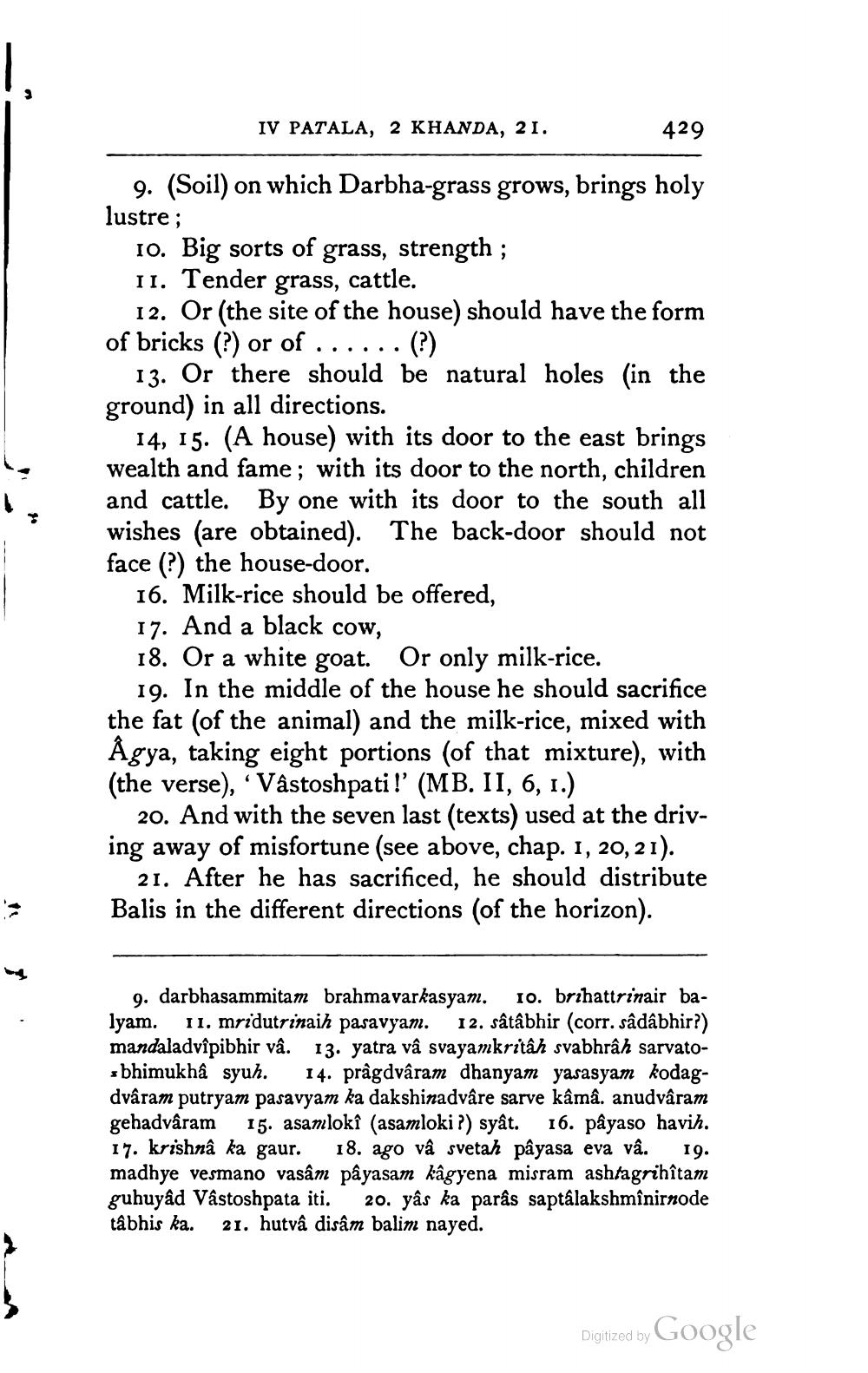________________
→
IV PATALA, 2 KHANDA, 21.
429
9. (Soil) on which Darbha-grass grows, brings holy lustre ;
10. Big sorts of grass, strength;
11. Tender grass, cattle.
12. Or (the site of the house) should have the form of bricks (?) or of . . . . . . (?)
13. Or there should be natural holes (in the ground) in all directions.
14, 15. (A house) with its door to the east brings wealth and fame; with its door to the north, children and cattle. By one with its door to the south all wishes (are obtained). The back-door should not face (?) the house-door.
16. Milk-rice should be offered,
17. And a black cow,
18. Or a white goat. Or only milk-rice.
19. In the middle of the house he should sacrifice the fat (of the animal) and the milk-rice, mixed with Agya, taking eight portions (of that mixture), with (the verse), 'Vâstoshpati !' (MB. II, 6, 1.)
20. And with the seven last (texts) used at the driving away of misfortune (see above, chap. 1, 20, 21).
21. After he has sacrificed, he should distribute Balis in the different directions (of the horizon).
9. darbhasammitam brahmavarkasyam. 10. brihattrinair balyam. 11. mridutrinaih pasavyam. 12. sâtâbhir (corr. sâdâbhir?) mandaladvîpibhir vâ. 13. yatra vâ svayamkritâh svabhrâh sarvatobhimukhâ syuh. 14. prâgdvâram dhanyam yasasyam kodagdvâram putryam pasavyam ka dakshinadvâre sarve kâmâ. anudvâram gehadvâram 15. asamlokî (asamloki ?) syât. 16. pâyaso havih. 17. krishnâ ka gaur. 18. ago vâ svetah pâyasa eva vâ. madhye vesmano vasâm pâyasam kâgyena misram ash/agrihîtam guhuyâd Vâstoshpata iti. 20. yâs ka parâs saptâlakshmînirnode tâbhis ka. 21. hutvâ disâm balim nayed.
19.
Digitized by Google




